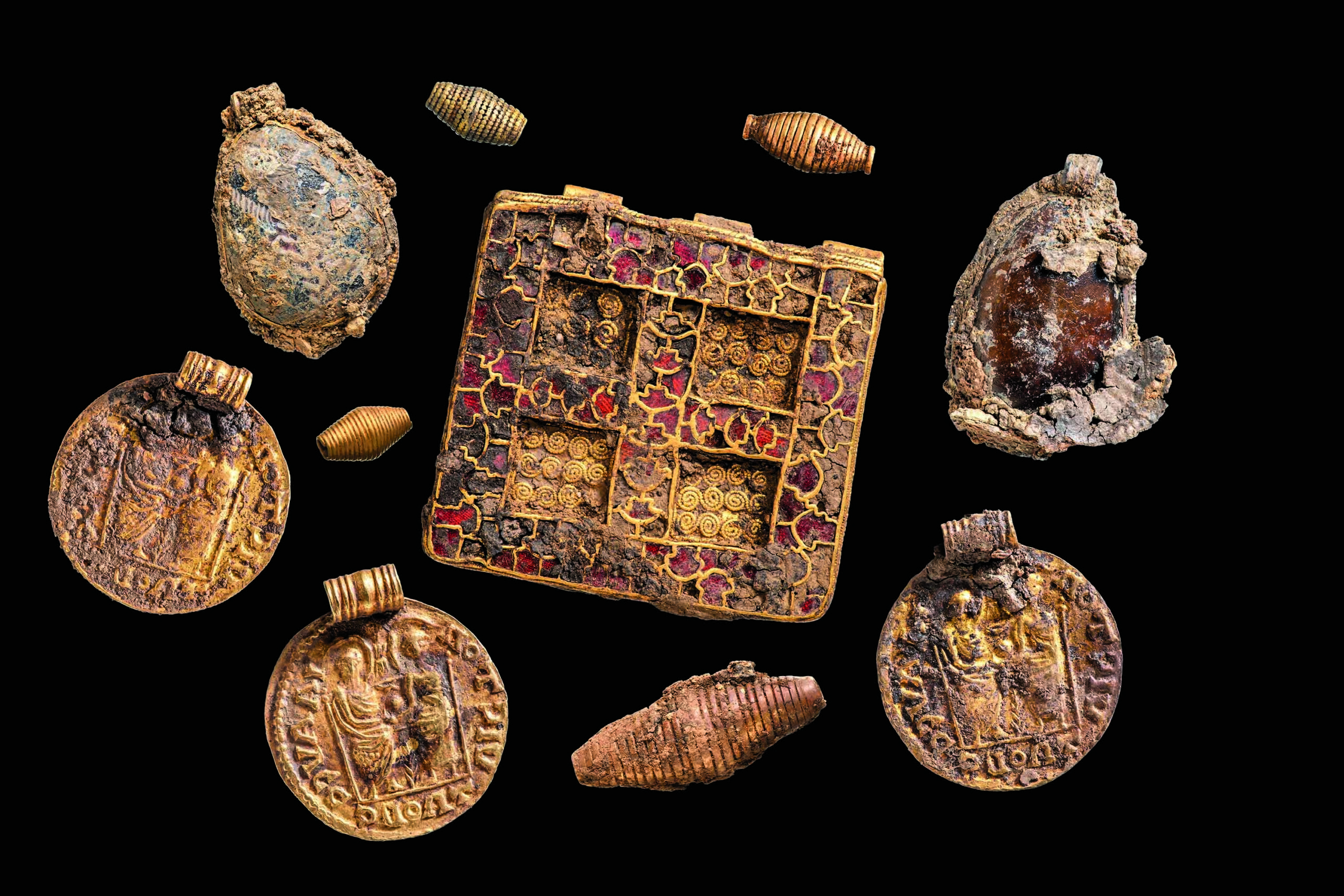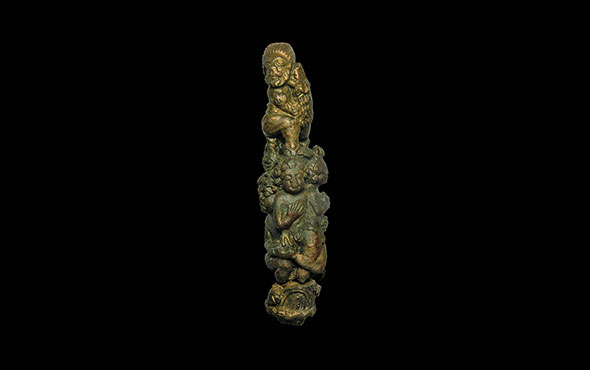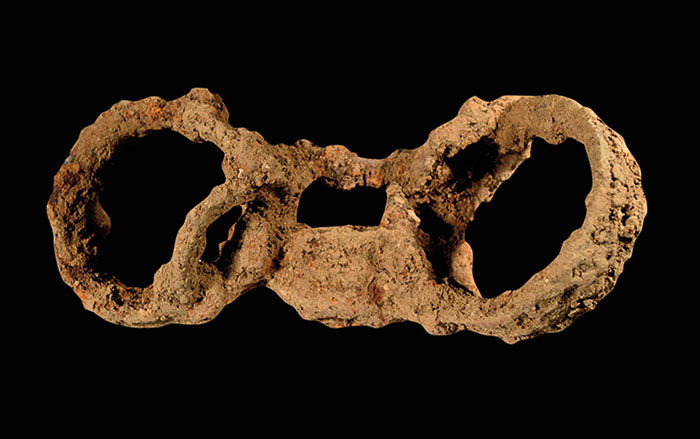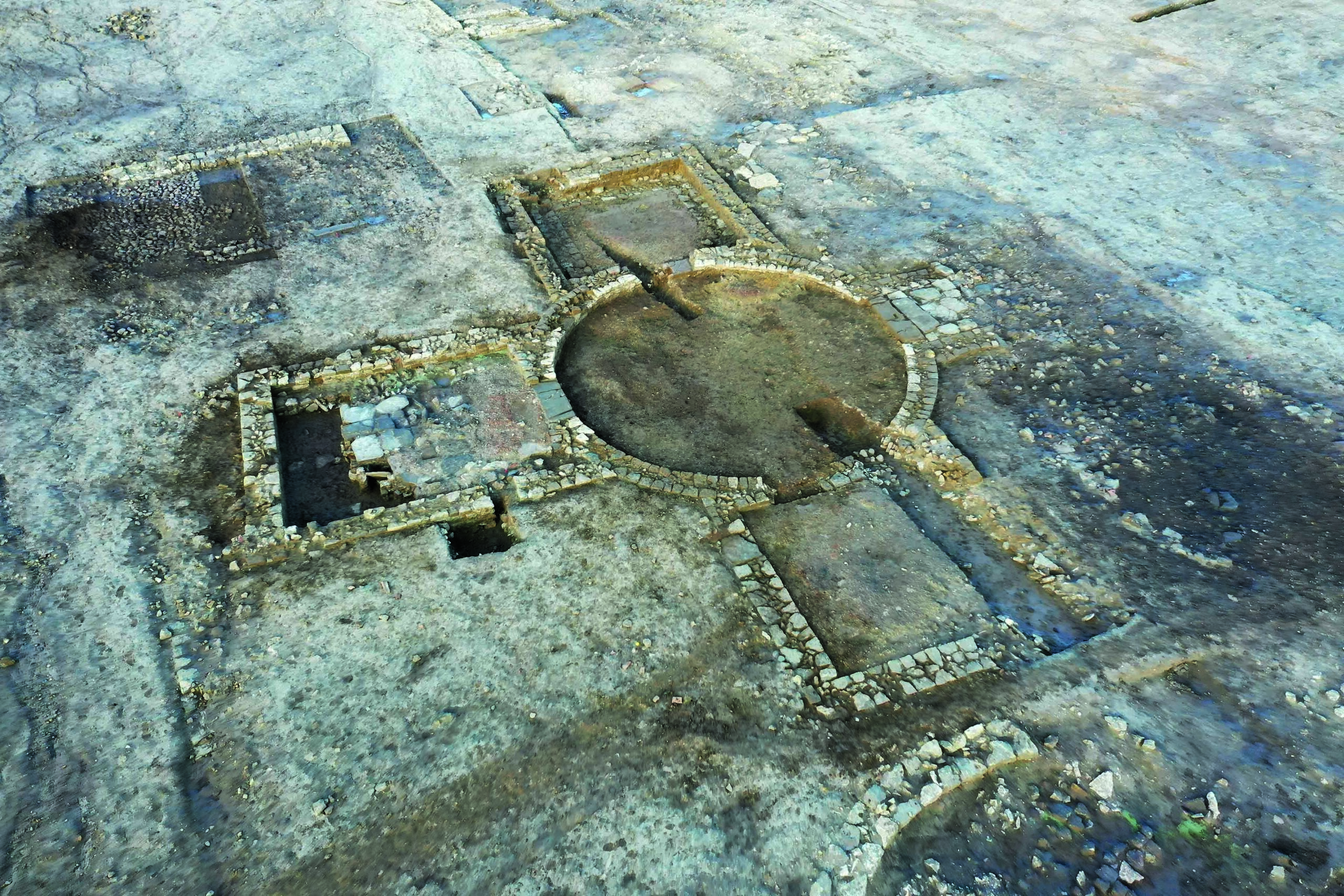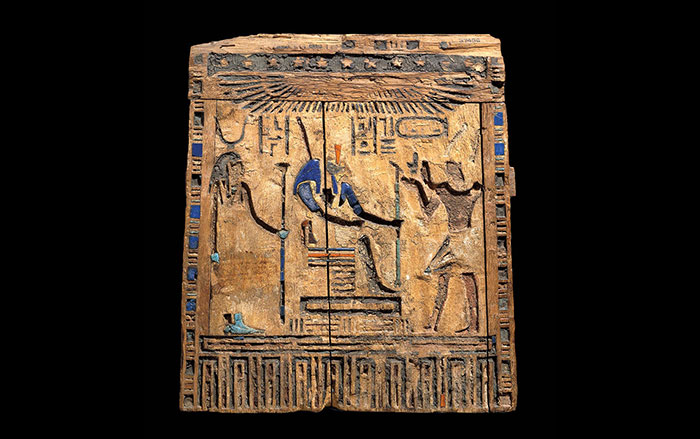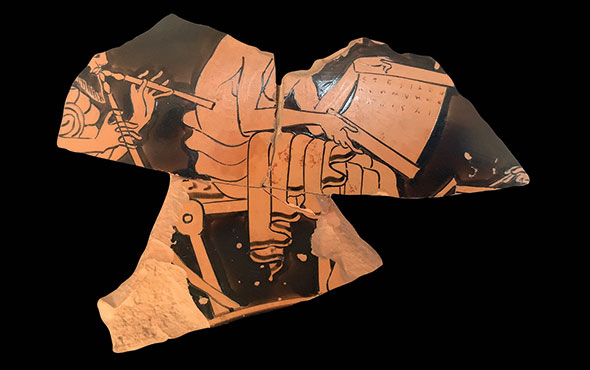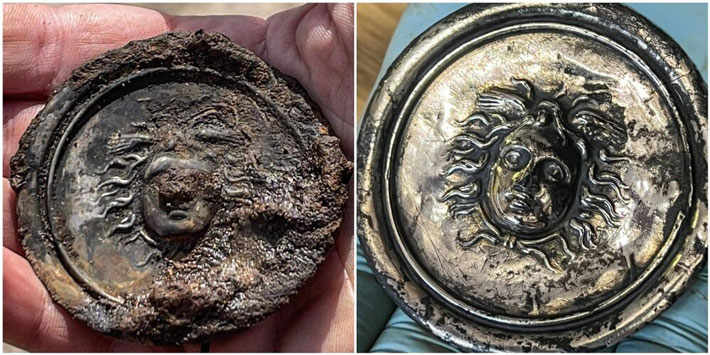
NORTHUMBERLAND, ENGLAND—Live Science reports that a silver military decoration, or phalera, adorned with the head of the gorgon Medusa has been discovered on a barrack floor at the site of Vindolanda, a Roman fort situated on what was once the frontier of the Roman Empire in northern England. Made of precious metals, a phalera like this one would have been awarded for valor in battle and worn during parades. In Greek mythology, snake-haired Medusa could turn people to stone at a glance. In Roman culture, Medusa’s likeness was believed to repel evil, and has been found on tombs, mosaics, and battle armor. This Medusa, thought to have been lost by a soldier, is also shown with wings on her head, and may have had the ability to fly. To read in-depth about Vindolanda and other Roman forts in northern England, go to "The Wall at the End of the Empire."


